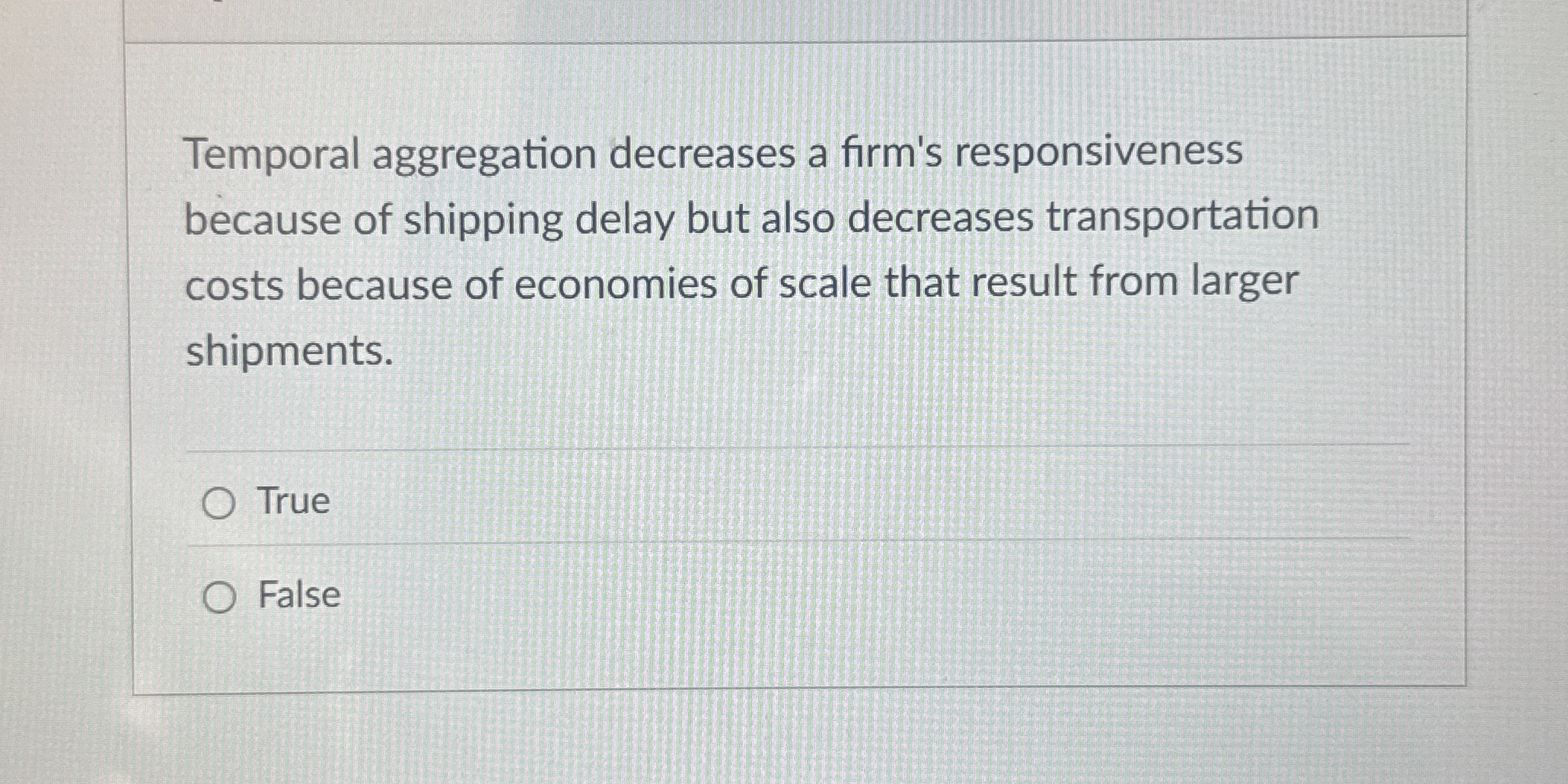Temporal aggregation decreases a firm's responsiveness because of shipping delay but also decreases transportation costs because of economies of scale that result from larger shipm... Temporal aggregation decreases a firm's responsiveness because of shipping delay but also decreases transportation costs because of economies of scale that result from larger shipments. True or False?

Understand the Problem
The question presented is a True/False statement concerning the effects of temporal aggregation (grouping orders over time) on a firm's responsiveness and transportation costs. It asserts that while temporal aggregation leads to shipping delays, reducing responsiveness, it simultaneously decreases transportation costs due to economies of scale from larger shipments. The question asks for whether the statement is accurate or not.
Answer
The statement is true.
True
Answer for screen readers
True
More Information
Temporal aggregation involves combining orders across time. While it can lead to reduced transportation costs due to economies of scale (larger, less frequent shipments), it also increases shipping delays, thus decreasing a firm's responsiveness.
Tips
It is important to consider both the benefits and drawbacks of temporal aggregation when designing a supply chain strategy.
Sources
- MBA 685 Supply Chain ManagementWeek 4 Chapter 14 | Chegg.com - chegg.com
- TRUE or FALSE 2 18 Temporal aggregation decreases a firms ... - coursehero.com
- chapter 13 test bank - Supply Chain Management - Studocu - studocu.com
AI-generated content may contain errors. Please verify critical information